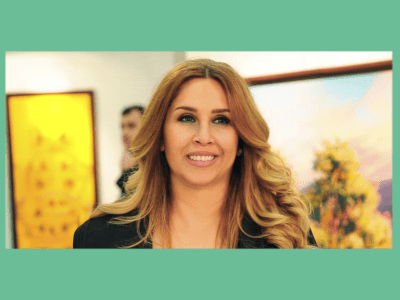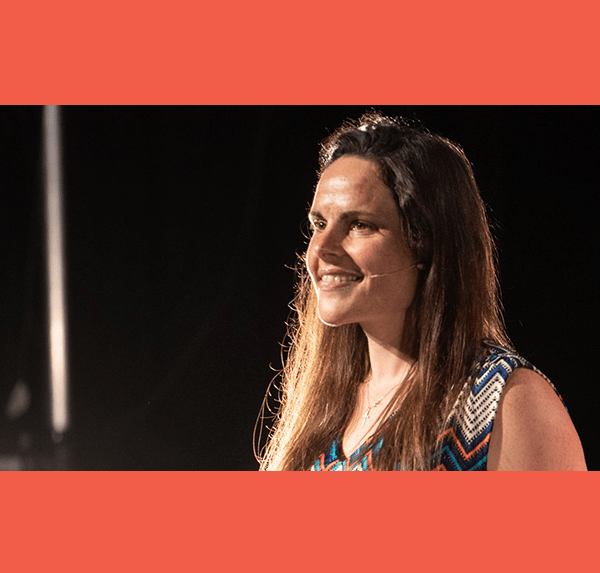Berlin-based entrepreneur, founder, and speaker, Miriam Janke, gave a presentation on the development of green start-ups to EU Business School students. Despite her youth—Miriam is only twenty-three years old—she has built three companies from scratch, and spoke knowledgeably about what it takes to set up your own business.

In addition to her founding role within the NAVATO Group, she is a respected mentor, championing female STEM students and entrepreneurs, and plays an active role in the German start-up scene. She is a member of Impact Factory, thinc! e.v., and ESA BIC, Northern Germany. In 2021, she was awarded a Certificate in Management from Harvard Business School.
In her presentation, she talked about her passion for developing eco-friendly solutions for carbon-heavy industries, like steel production. The NAVATO Group was set up in 2020 to bring about change in different sectors, including aerospace, space, quantum computing, shipping and recycling.
But before we get into that, let’s examine some of the current trends in the sustainable business market and see how and where you can get involved.
The sustainability story (so far)
Global awareness of the climate crisis has grown steadily over the last ten years. In December 2015, 196 nations signed a legally binding international treaty on climate change. In 2018, the activist Greta Thunberg, whom Miriam cited as an example and key player for the green transformation, led a “climate strike,” which was carried out by students worldwide. As a result, the Collins Dictionary named “climate strike” as its 2019 Word of the Year.
Sustainability has also become a watchword on the executive floors of national and international organizations. Changes in consumer awareness, legal requirements such as the Paris Agreement, and economic incentives from governments have all contributed to the drive towards greener business.
In fact, a study by the Borderstep Institution in conjunction with the German Start-ups Association reveals that the proportion of green companies rose to almost 30% in the last financial year – and figures released by the International Labour Organisation (ILO) predict that as many as 60 million new jobs could be created globally in this sector by 2032 thanks to a worldwide shift towards greener living.
The Paris Agreement represents an international commitment to limit global warming to below 2 degrees Celsius compared to pre-industrial levels. To achieve this before climate damage is irreversible, the countries involved will need to reach net-zero emissions by 2050.
In addition to becoming carbon neutral, the EU also wants to see a collective net greenhouse gas emissions reduction of at least 55% by 2030 compared to 1990. To meet this goal, national governments are investing in renewable energies and providing financial support to new green businesses.
What makes a start-up “green”?
As a result of this awareness, many companies will review their operations, looking for ways to reduce their carbon footprint and their overall impact on the environment.
However, in the start-up world, this is not enough to qualify you as a green business. To achieve that status, you need to be actively contributing to fresh solutions, finding new and innovative ways to reduce not just your own, but the world’s carbon footprint.
Many companies will use the word “green” in their branding and marketing regardless, so whether you are a consumer or a CEO, you need to be aware of “greenwashing.”
Greenwashing is designed to make customers and users believe that a company is doing more to protect the environment than it actually is. This is often done by investing more time and money on marketing rather than actual, sustainable solutions.
German start-up Plan A, which helps companies measure, reduce, and report on their carbon footprint, recently surveyed more than 2,219 “green” products and found that 98% of manufacturers were guilty of greenwashing in some way.
The best ways to combat and end greenwashing are to do thorough research into company culture and mission statements and petition for EU-wide legislation that would make it compulsory for companies to share records of their CO2 emissions publicly.
How else can you get involved in the green economy?
If you are thinking of pursuing a career in this sector, there are many different areas within it that you might want to explore. For example:
- Sustainable energy supplies
- Financial services/funding
- Sustainable consumption
- City planning
- Mobility/transport options
- Production and resources
You don’t even need to be a scientist to make a difference. A background in business or a curious and analytical mind is all that it takes to succeed if you have the right mindset.
Miriam shared details of her own entrepreneurial journey with the students who attended her presentation, and gave them advice on founding their own start-up companies.
- Always have a goal or a vision that you are working towards and create a tactical plan, how to achieve it.
- Make the most of all the resources at your disposal. These might be guest speakers at your university, keynotes online. Connect with other entrepreneurs on social media, too, and ask for support!
- When you have developed your idea, join a start-up program. Miriam got her start with the Young Entrepreneurs’ Program (YEP). Networking is a great tool for knowledge and motivation, and being accountable to your peers will help drive you forwards. So create an accountability group!
- Apply for funding from incubators and accelerators. Lack of money is often the greatest challenge a start-up faces in its infancy. Because of awareness, you now have a better chance of securing financial assistance. Organizations to look up include Horizon 2020 (EU Funding for Research and Innovation, KFW, and GLS Bank.
What does NAVATO do?
The NAVATO Group and its associated companies help green technology companies effectively fight the climate crisis, constantly expanding into different fields.
- Circular Economy-Recycling. Through their sub-company, B2W Recycling, they turn used tires into secondary raw materials. Steel factories produce huge amounts of carbon dioxide, and in order to combat that, NAVATO have invented a thermolysis process that doesn’t need CO2.
- Nanotechnology. NAVATO are moving into the shipping, space, and aerospace fields, intending to collaborate
with ESAon a quantum computing project.
Within the next ten years, Miriam wants NAVATO to be industry leaders in Europe, reduced CO2 emissions across the continent, and made a significant contribution towards meeting the 2050 net-zero emissions goal set out in the Paris Agreement.
Finally, what advice would Miriam give to young entrepreneurs?
“Create your vision and really execute and stick to the plan. Sit down, get really motivated and positive people around you, and then execute, execute, execute.”
The word “motivation” came up frequently. According to Miriam, as an entrepreneur, the only person responsible for your success is yourself.
Feeling inspired?
Discover our undergraduate program in Business Management (Enterprise), plus postgraduate degrees in Innovation and Entrepreneurship and Entrepreneurship.
Students at EU Business School have the opportunity to live and learn in some of Europe’s biggest corporate hubs, including Geneva, home to the World Business Council of Sustainable Development.
In addition to your regular program schedule, if you enroll in one of our courses, you will also have full access to presentations like this one, courtesy of the Careers Department.









